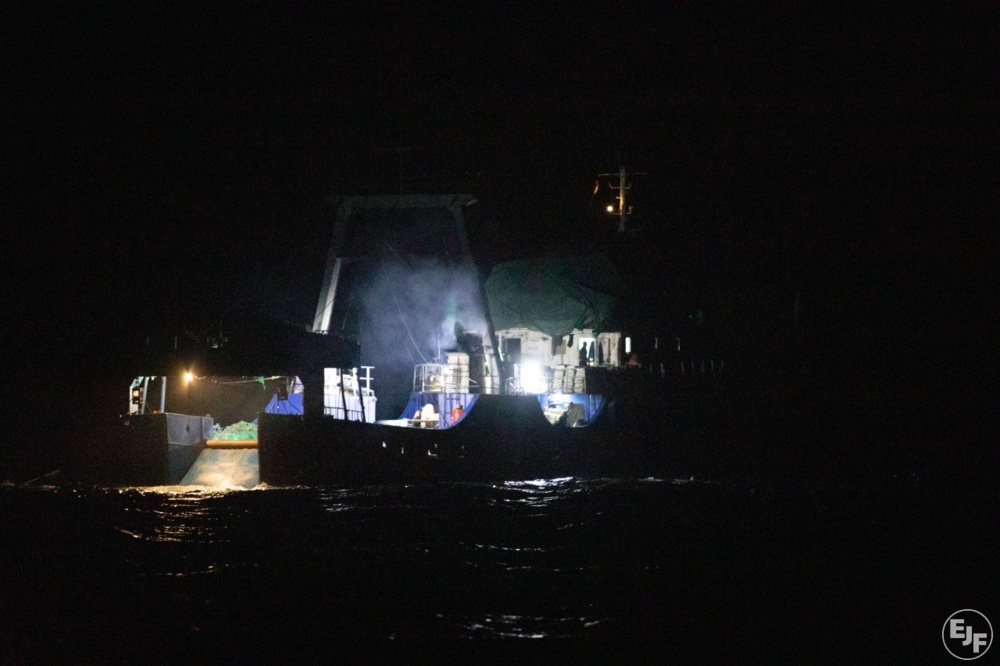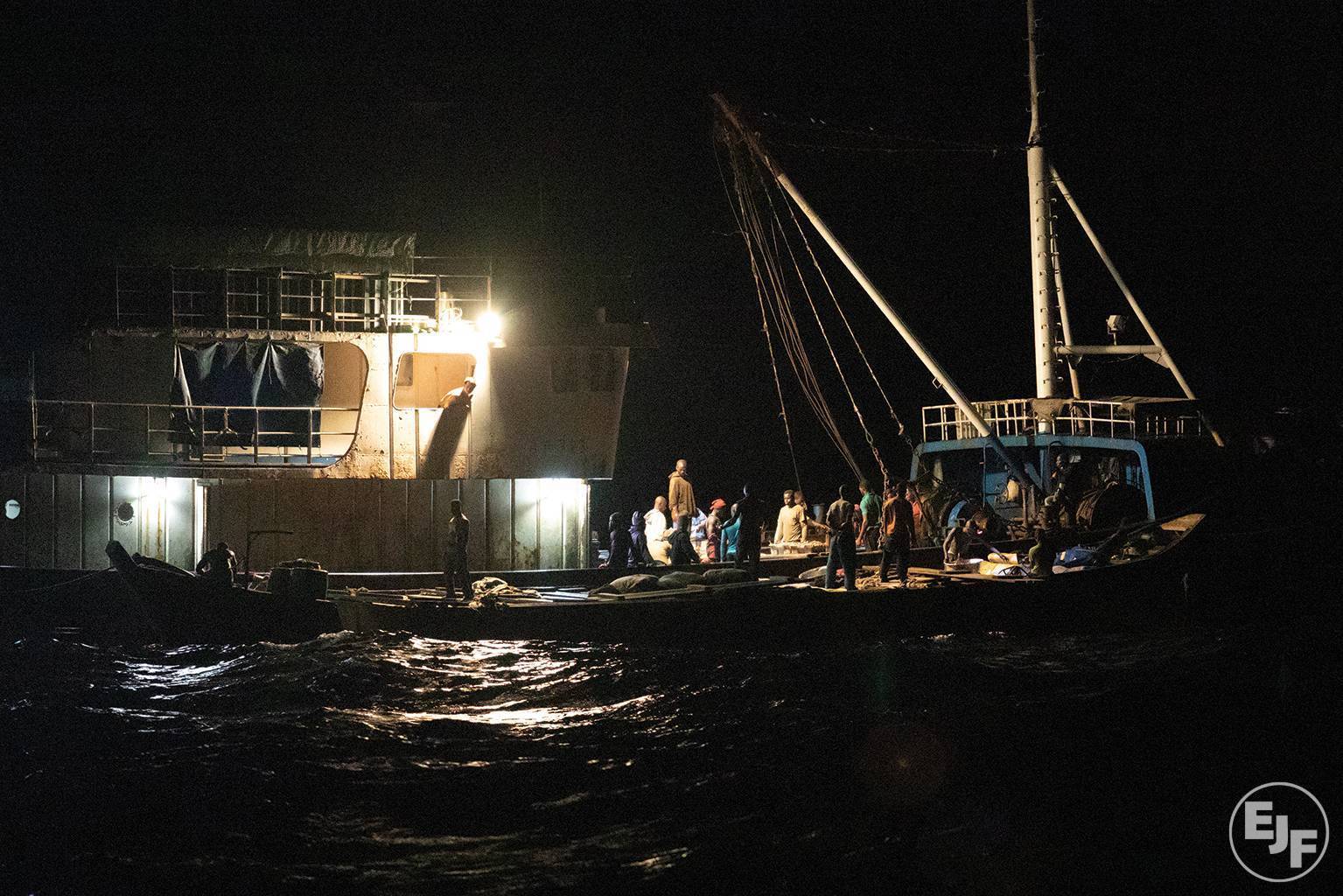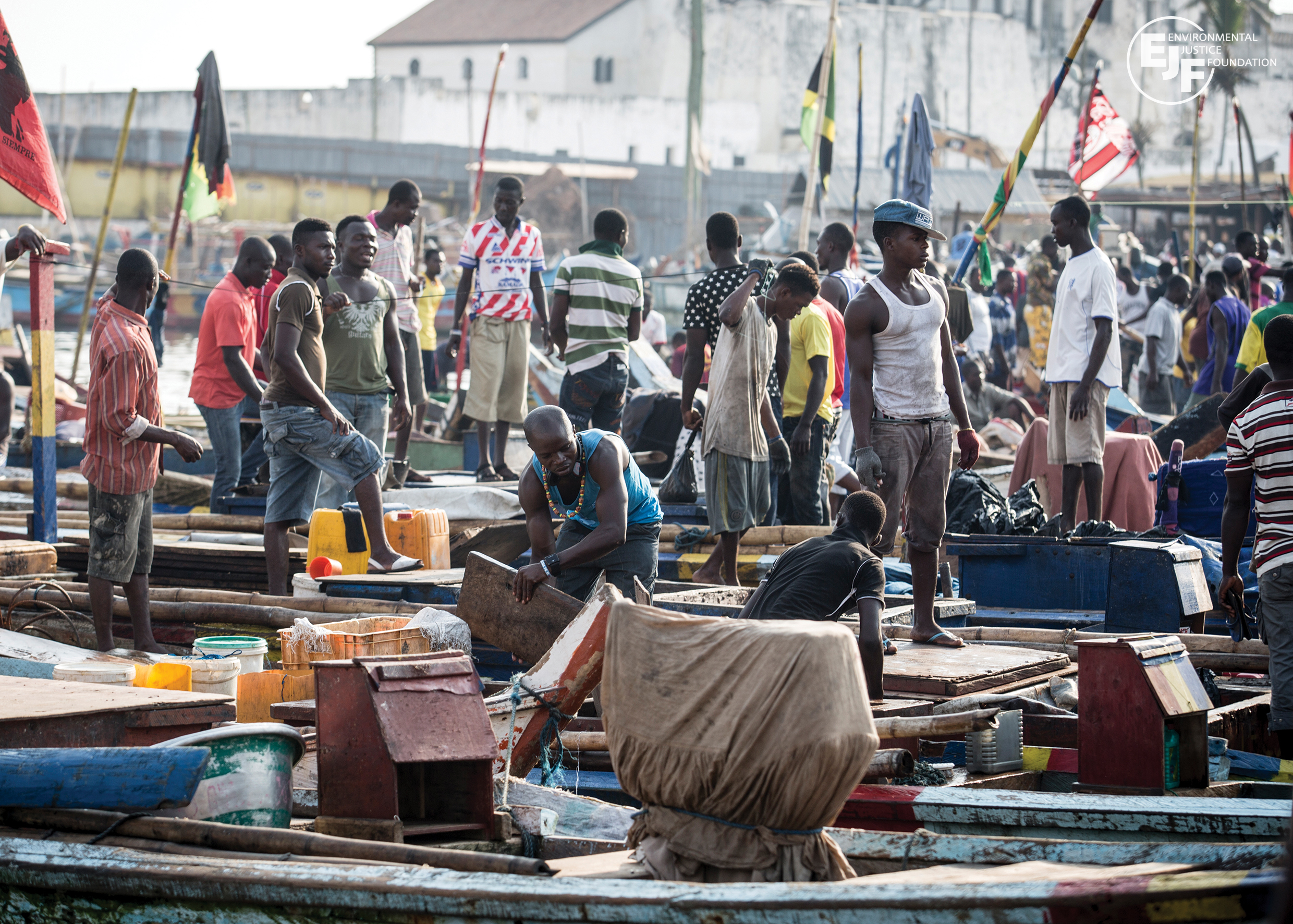
Trawlers charged with illegal fishing continue to dodge fines in Ghana
Last year, the vessel Lu Rong Yuan Yu 956 was caught in Ghanaian waters with illegal nets and undersized ‘small pelagic’ fish on board – the staple catch of local canoe fishers. The US$1 million fine originally imposed is the statutory minimum under Ghanaian law. However, the owners have refused to pay. This is a systemic problem for Ghana, in which the true beneficiaries of illegal fishing go almost entirely unpunished, the Environmental Justice Foundation (EJF) has said.
Ghana’s ‘small pelagic’ fish stocks – a staple food for local coastal communities – are on the brink of collapse. Researchers predict their total loss in under a decade unless urgent action is taken.
This is due in large part to illegal fishing – and especially the destructive trans-shipment practice known as saiko. The Lu Rong Yuan Yu 956 is the latest in a string of cases where the offenders are either given a much lower fine or refuse to pay entirely, and are later re-licensed to fish.
If Ghana’s government wants to protect its fish stocks, food security and coastal communities it needs to urgently crack down on these practices, says EJF.
In 2017 the owners of a Ghanaian-flagged industrial trawler, Meng Xin 16, refused to pay a fine imposed by an out-of-court settlement committee in a case of illegal trans-shipment. The vessel has since paid an undisclosed sum and been re-licensed to continue fishing. Another vessel, the Meng Xin 29, which was fined for illegal fishing in 2019, has paid a lower sum and since been re-licensed to fish.
Around 90% of Ghana’s industrial fishing fleet is linked to Chinese ownership, an EJF investigation revealed in 2018. As Ghana’s fisheries laws prohibit foreigners from engaging in joint ventures in the industrial trawl sector, Chinese organisations operate through Ghanaian ‘front’ companies, using opaque corporate structures to import their vessels, register and obtain a licence.
These underhand dealings have precluded attempts to ensure the true beneficiaries of illegal activities are held to account, says EJF.
Both the Meng Xin 16 and Meng Xin 29 are linked to a Chinese company a recent investigation by China Dialogue revealed. In the current case, the Lu Rong Yuan Yu 956 is also operated by a Chinese company, Rongcheng Ocean Fishery Co Ltd.
The company also owns another vessel which was caught in 2015 taking under-sized fish – juveniles that are crucial to replenish fish populations. They paid only GHS 200,000 (US$ 35,394) in fines, well below the US$1 million minimum stated in the law.
Such has been the devastating impact of illegal fishing activities that Ghana now has to import around half of its fish, and local fishing communities are increasingly victims of the impact of rapidly declining fish populations. According to the Fisheries Act, failure to pay the fine within 30 days results in the matter reverting to the court. It is now essential that the court uses all legal options available to require payment of the fine and accompanying sanctions to ensure deterrence.
SIGN UP FOR OUR EMAILS AND STAY UP TO DATE WITH EJF

